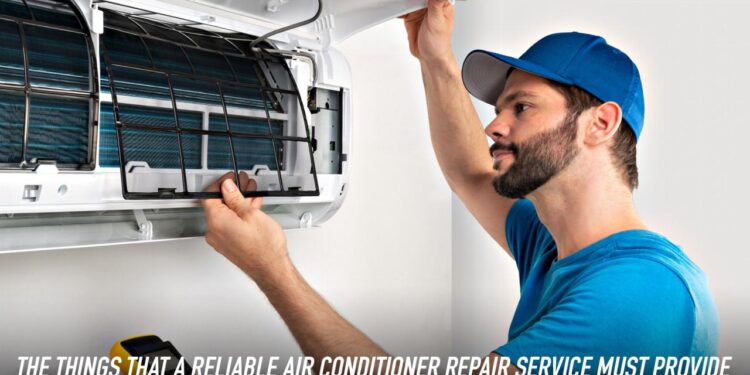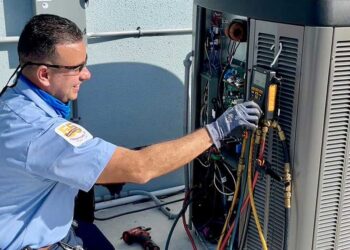Exploring the world of AC repair men, this introduction delves into the responsibilities, skills, and common tasks involved in this field. From diagnosing common AC problems to understanding safety precautions, this guide covers it all in a comprehensive yet engaging manner.
Whether you're a homeowner in need of AC repair services or simply curious about the work of these professionals, this guide will provide valuable insights into the world of AC repair men.

What Does an AC Repair Man Do?
When it comes to the role of an AC repair man, they are responsible for diagnosing, repairing, and maintaining air conditioning systems in residential, commercial, and industrial settings. They play a crucial role in ensuring that these systems are running efficiently and effectively.
Responsibilities of an AC Repair Man
- Inspecting and troubleshooting air conditioning systems to identify issues.
- Repairing or replacing faulty components such as compressors, coils, and motors.
- Performing regular maintenance tasks like cleaning filters and checking refrigerant levels.
- Installing new air conditioning units and ductwork.
- Providing recommendations to customers on how to improve the efficiency of their systems.
Skills and Knowledge Required
- Strong technical skills to diagnose and repair complex HVAC systems.
- Knowledge of electrical systems, refrigeration, and air quality control.
- Ability to read and interpret technical manuals and blueprints.
- Excellent problem-solving and troubleshooting abilities.
- Good communication skills to interact with customers and explain issues clearly.
Common Tasks Performed
- Replacing air filters to improve air quality and system efficiency.
- Checking and adjusting refrigerant levels to ensure proper cooling.
- Cleaning coils to enhance system performance and prevent overheating.
- Testing system controls and safety switches for optimal functionality.
- Responding to emergency repair calls to address system breakdowns promptly.
Types of AC Systems Repaired
When it comes to air conditioning systems, an AC repair man is trained to work on a variety of systems. Each type of AC system comes with its own set of complexities and repair requirements. Let's explore the different types of AC systems repaired by an AC repair man and the intricacies involved in fixing them.
Central Air Conditioning Systems
Central air conditioning systems are common in homes and commercial buildings. These systems use ducts to distribute cool air throughout the space. Repairing central AC systems may involve diagnosing issues with the compressor, refrigerant levels, or ductwork.
Window Air Conditioning Units
Window air conditioning units are compact systems that are typically installed in windows or walls. Repairing window AC units may involve troubleshooting issues with the fan, compressor, or thermostat. These units are often more straightforward to repair compared to central AC systems.
Ductless Mini-Split Systems
Ductless mini-split systems are versatile and energy-efficient AC systems that do not require ductwork. Repairing ductless mini-split systems may involve addressing issues with the indoor and outdoor units, refrigerant leaks, or sensor malfunctions. These systems offer flexibility in zoning and temperature control.
Portable Air Conditioners
Portable air conditioners are standalone units that can be moved from room to room. Repairing portable AC units may involve fixing issues with the exhaust hose, evaporator coils, or condenser. These units are ideal for cooling specific areas and are relatively easy to install and repair.
Heat Pumps
Heat pumps are dual-purpose systems that can both heat and cool a space. Repairing heat pumps may involve troubleshooting issues with the compressor, reversing valve, or defrost cycle. These systems are efficient for moderate climates and require specialized repair knowledge.
Common AC Problems
When your AC starts acting up, it's important to identify common issues that may require the attention of an AC repair man. Here are some of the most frequent problems homeowners face:
1. Refrigerant Leaks
Refrigerant leaks can cause your AC to blow warm air or not cool your home properly. To diagnose this issue, the AC repair man will need to locate the leak, repair it, and recharge the system with the correct amount of refrigerant.
2. Frozen Evaporator Coils
Frozen evaporator coils can restrict airflow and reduce cooling efficiency. The repair man will check for issues like dirty filters, low refrigerant levels, or problems with the blower motor that could be causing the coils to freeze.
3. Electrical Problems
Electrical issues, such as faulty wiring or a malfunctioning capacitor, can prevent your AC from turning on or cause it to shut off unexpectedly. The repair man will inspect the electrical components and make any necessary repairs to ensure proper functioning.
4. Clogged Drain Line
A clogged drain line can lead to water leaks and mold growth. The repair man will clear the blockage and clean the drain line to prevent water damage and maintain a healthy indoor environment.
5. Thermostat Malfunctions
A malfunctioning thermostat can cause temperature inconsistencies or prevent the AC from turning on/off as needed. The repair man will calibrate or replace the thermostat to ensure accurate temperature control.
Preventive Measures
To avoid common AC problems, homeowners should schedule regular maintenance checks, change air filters regularly, keep the outdoor unit clean and free of debris, and ensure proper insulation and sealing of ductwork to maximize efficiency and prevent issues before they arise.
Tools and Equipment Used
When it comes to repairing air conditioning systems, AC repair professionals rely on a variety of tools and equipment to diagnose issues and make necessary repairs. These tools are essential for ensuring the efficient and effective functioning of AC units.
Essential Tools for AC Repair
- 1. Multimeter: This tool is used to measure voltage, current, and resistance in the AC system, helping technicians identify electrical issues.
- 2. Refrigerant Gauges: These gauges are crucial for checking refrigerant levels and pressures within the system, ensuring proper cooling performance.
- 3. Leak Detectors: Used to locate refrigerant leaks in the system, preventing further damage and ensuring optimal efficiency.
- 4. Thermometer: Helps in measuring air temperatures to assess cooling performance and identify potential problems.
Advancements in Technology and Tools
With advancements in technology, AC repair tools have also evolved to become more sophisticated and efficient. For instance, digital multimeters now offer more precise readings, while thermal imaging cameras can detect temperature variations within the system. Additionally, some repair professionals use software applications to analyze system data and diagnose issues quickly and accurately.
Impact of Technology on AC Repair
- 1. Improved Accuracy: Advanced tools allow for more accurate diagnosis and repair of AC systems, reducing the margin of error.
- 2. Faster Repairs: Technological advancements enable technicians to identify issues quickly and perform repairs efficiently, saving time for both the technician and the customer.
- 3. Enhanced Troubleshooting: Modern tools provide detailed insights into system performance, making it easier to pinpoint and resolve complex problems.
Safety Precautions
When it comes to working on AC systems, safety precautions are crucial to ensure the well-being of AC repair professionals and the clients. Following safety protocols not only reduces the risk of accidents but also enhances the efficiency and quality of the repair work.
Importance of Safety Protocols
- Wearing appropriate personal protective equipment (PPE) such as gloves, goggles, and masks can prevent injuries from sharp edges, electrical shocks, or exposure to harmful chemicals.
- Properly training on handling refrigerants and electrical components reduces the risk of leaks, fires, or explosions.
- Adhering to safety guidelines while working at heights or in confined spaces minimizes the chances of falls or entrapment.
Potential Hazards
- Electrical hazards: AC repair professionals may encounter live wires, faulty connections, or short circuits that can lead to electric shocks or fires.
- Refrigerant leaks: Exposure to refrigerants can cause skin irritation, respiratory issues, or even frostbite if not handled properly.
- Physical hazards: Working with heavy equipment, lifting units, or accessing tight spaces can pose risks of strains, sprains, or falls.
Outcome Summary
In conclusion, the role of an AC repair man is crucial in maintaining the functionality of air conditioning systems. By understanding their responsibilities, the types of systems they work on, common issues they face, tools they use, and safety precautions they take, you gain a deeper appreciation for the work they do.
Next time your AC needs fixing, you'll know exactly who to call for reliable service.
FAQ Guide
What are the typical responsibilities of an AC repair man?
An AC repair man is responsible for diagnosing, repairing, and maintaining air conditioning systems in residential or commercial settings.
What are some common issues that require the attention of an AC repair man?
Common issues include refrigerant leaks, compressor problems, and issues with the thermostat.
What safety measures do AC repair men take while working on AC systems?
AC repair men follow safety protocols such as wearing protective gear, ensuring electrical safety, and handling refrigerants properly.
What advancements in technology have impacted the tools used for AC repairs?
Technological advancements have led to the development of more efficient diagnostic tools and equipment for AC repairs.
















